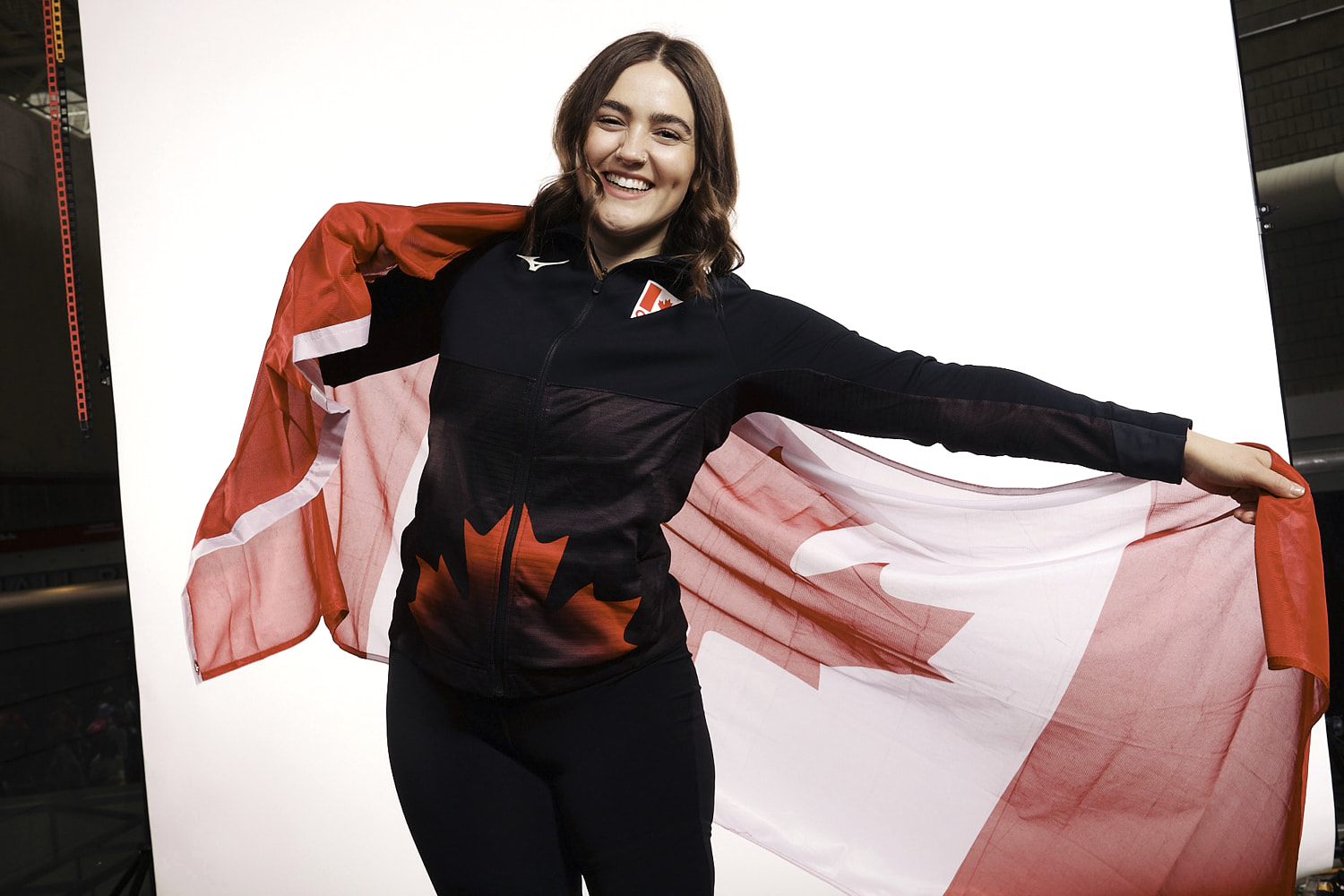When I found out I made Team Canada’s Paralympic sitting volleyball team, I felt overwhelmed with emotions. As cliched as it sounds, I thought of the younger version of myself who longed for a place in society where I belonged. I felt proud of how far I'd come with my own self-acceptance for not having my lower left leg and using a prosthetic.
In the middle of my excitement, I encountered some comments online that might have been well intended but are — meaning they’re discriminatory against people with disabilities, based on the assumption that nondisabled people are superior. I’ve tried gently addressing these comments in social media posts — and in real life. When I share my excitement about competing in my first Paralympic Games, some people correct me and ask if I mean the Olympics.

Some people confuse the Paralympics with the Special Olympics, which are for people with cognitive and intellectual disabilities. But it gives me the chance to explain the differences between the games. Being a Paralympian isn’t less impressive.
The para in Paralympics doesn’t mean paraplegic like many believe. The para means parallel. They run parallel to the Olympic games.
The Paralympic Games might include different events, but both showcase elite athletes coming together to represent their home country in sports. Paralympians have physical disabilities, yet we train like Olympic athletes and compete at the same high levels. My team is in the gym three times a week, has conditioning three times a week and spends up to four days practicing on the court.
But I also encounter ableist comments in daily life. There are times that I’ve been working out in the gym and strangers approach me to congratulate me. When I ask why, they often respond with “You made it to the gym today.
” That perception makes me feel as if I am not to take up space in the gym, on the track, in running clubs. It also feels belittling. I can take up space and move my body in the ways that it allows me.
Another comment I see people saying is: "If they can do that with no legs, then I have no excuse not to go for my run." I shared my thoughts on this on social media, noting that Paralympians are not your inspiration porn. These comments make us feel less than other people.
Paralympians are elite athletes. I hope to educate people so that when they watch the Paralympics, they see we're not just inspirational — we’re also aspirational. It’s great to feel inspired by incredible athletic achievements.
That’s what the Olympics and Paralympics are all about. Be inspired by our accomplishments, not by our existence. It’s great to feel inspired by incredible athletic achievements.
That’s what the Olympics and Paralympics are all about. Be inspired by our accomplishments, not by our existence. Ableism follows me into mundane daily life.
Sometimes when I carry groceries into my house, people try to help me because they assume I cannot do it. Once an older woman told me how inspiring it was that I lived independently. I know she was likely coming from a place of kindness, but when you say disabled people are inspiring for doing everyday tasks that able-bodied people do, it dehumanizes us.
We don’t want people to look at us like that. I, too, once held some internal ableism, even though I was born without my left leg below the knee (to the surprise of my parents and the doctors). While my parents are amazing and raised me like any other child, I struggled to accept myself.
Others bullied me for my disability, and I tried so hard to hide my prosthetic, wearing long pants regardless of how hot it was and lying about why I walked with a limp. While I enjoyed soccer, swimming, snowboarding or any other sport I tried, I often dropped out because I didn’t want others to notice my disability. At times, I felt like I wanted to die.
(And if anyone reading this is in the same position, here are .) I was at the lowest point of my life when I was invited to play sitting volleyball. My first thought was hell no.
Being associated with an adaptive sport meant embracing my disability. Throughout my life I wanted to fit in and playing sitting volleyball would make me stick out. Finally, I decided to try it and fell in love with sitting volleyball.
I wasn’t great at it when I first started eight years ago. In sitting volleyball, you need core strength and endurance and speed. The net is lower, the court is smaller and the pace is faster.
Sitting volleyball requires a lot of upper body strength because we slide our bodies rapidly across the court and must quickly raise our arms to return a volley. While I enjoyed the sport, it was my teammates who kept me coming back. These women shared their stories about how they became disabled and displayed their resiliency.
They had careers, families, children — all of the things I hoped for my own life — and they were elite athletes. I finally found people I could aspire to be like. More Paralympic events than ever are being televised during the Paris Games and I hope this means more disabled children see incredible athletes who look like them.
Growing up, I didn’t realize I could be a disabled athlete because I didn’t know they existed. I hope that I can be the role model that I never had..



















